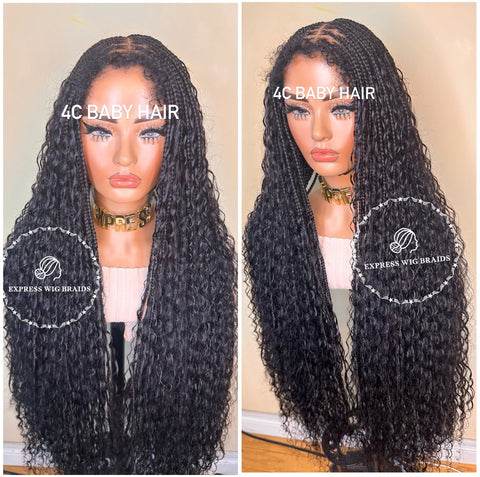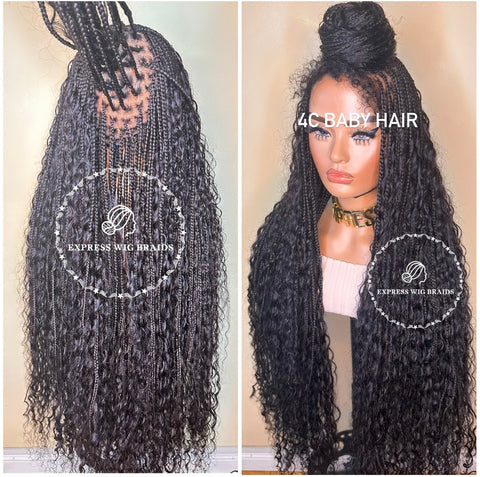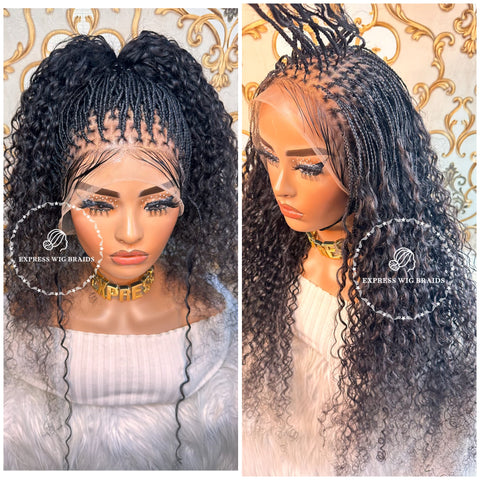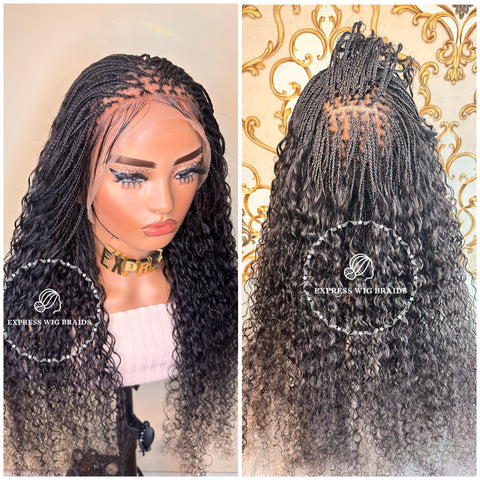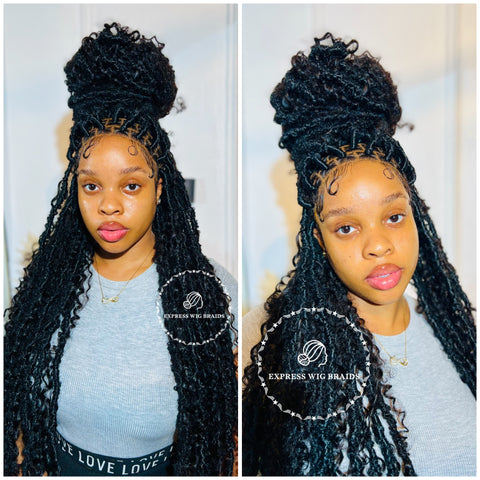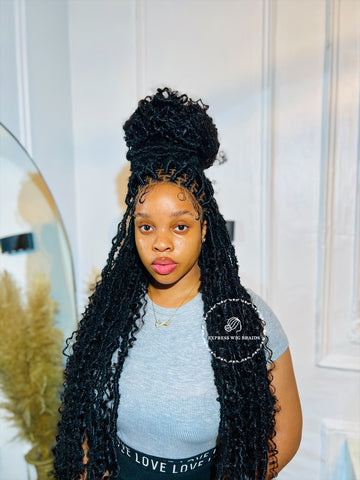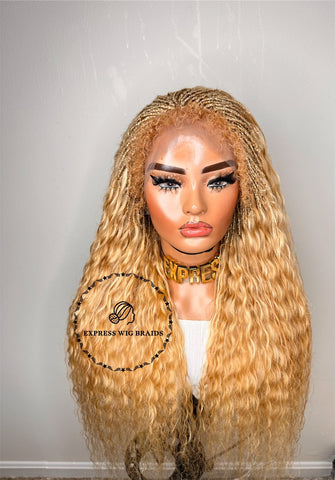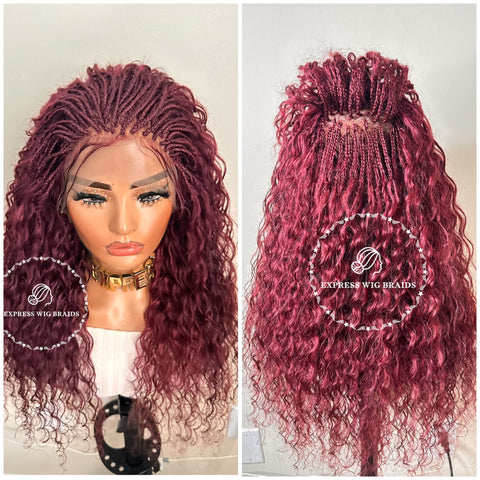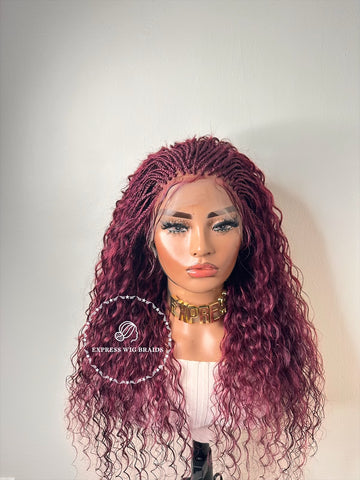How to Care for Aging Black Hair

As we all know, aging is a natural process, and it affects every part of the body, including the hair. As we age, our hair often needs a little more tender care than it used to.
Maybe you’ve noticed more gray hairs, change in your hair texture, breakage, or thinning, and wonder if your hair can still be as strong and vibrant as it once was.
The answer is, with the right products and techniques, aging Black hair can look and feel amazing.
Here are the top strategies for caring for aging Black hair:
1. Choose the Right Hair Care Products
Choosing the right hair care products is key to maintaining healthy, aging Black hair. It's important to pick products that are both nourishing and specifically suited to your hair’s unique needs.
-
For shampoos and conditioners, look for sulfate-free options that provide hydration and are designed for dry or aging hair.
-
Since aging hair often loses strength and elasticity, adding protein treatments to your routine is a good idea to help reinforce the hair shaft.
-
Natural oils, such as argan, jojoba, or castor oil, are great for sealing in moisture and adding shine. However, it’s important to apply oils sparingly to avoid weighing the hair down.
-
As hair becomes more fragile with age, using a heat protectant spray or serum before using any hot styling tools like blow dryers, flat irons, or curling irons is important to prevent damage.
2. Maintain a Healthy Scalp
A healthy scalp is essential for maintaining healthy hair, especially as you age when scalp issues can become more noticeable. To keep your scalp clean, nourished, and free of buildup, there are a few steps you can follow.
-
Start by using a gentle, sulfate-free shampoo designed for dry or aging hair. Sulfates can strip the scalp of its natural oils, leading to dryness and irritation.
-
Exfoliating your scalp is another important step. Regular exfoliation helps remove dead skin cells and product buildup, promoting a cleaner scalp and healthy hair growth.
-
Just like your skin, your scalp needs moisture to stay healthy. Look for scalp oils or leave-in treatments that contain natural oils like jojoba, argan, or castor oil, which can help hydrate the scalp and support hair growth.
-
Also, massaging your scalp for a few minutes each day can stimulate blood circulation to the hair follicles, enhancing overall scalp health and promoting growth.
3. Hydrate Your Hair
Hydration is essential for Black woman’s hair at any stage, but it becomes even more important with age, as hair tends to become drier.
-
Using moisturizing products that deliver water and nutrients can help restore softness, shine, and manageability.
-
Deep conditioning treatments should be incorporated into your routine at least once a week.
-
Use products that are rich in proteins, vitamins, and nourishing oils as these ingredients help replenish moisture, strengthen hair, and reduce the risk of breakage
-
Leave-in conditioners are another great way to provide ongoing hydration.
-
To keep hair moisturized daily, especially if it tends to dry out, use a lightweight cream or oil that doesn’t leave a greasy feeling. Be sure to focus on the ends, as they are typically the driest part of your hair.
4. Be Gentle When Styling
As hair ages, it becomes more vulnerable to breakage, so it's important to handle it with care.
To protect your hair while styling, try the following tips:
-
Avoid using harsh styling techniques that could damage both the strands and the scalp.
-
Limit the use of heat styling tools, as they can cause further dryness and breakage.
-
Tight hairstyles like ponytails, braids, and buns can put unnecessary tension on the hair, leading to breakage and thinning.
-
Instead, opt for looser, more protective styles that don’t stress the hair. You can also use satin or silk hair ties, which are gentler on the strands.
-
Finger-detangling is another great way to prevent breakage. Rather than using combs or brushes, which can pull and damage the hair.
-
When you do need to use a comb, choose a wide-tooth comb or a detangling brush.
-
Protective styles like braids, twists, or wigs can help preserve your hair’s health by limiting daily manipulation.
5. Hair Nutrition and Health
Your diet plays a vital role in the health of your hair, especially as you age. Certain nutrients are vital for maintaining strong, healthy hair.
-
Since hair is primarily made up of protein, it's important to ensure you're getting enough in your diet.
-
Foods like eggs, chicken, fish, and beans provide the necessary building blocks to keep your hair strong and resilient.
-
Biotin, vitamin E, and vitamin D, along with minerals like zinc and iron, support hair growth and strength.
-
To boost these nutrients, consider incorporating nutrient-rich foods like leafy greens, nuts, and seeds into your meals or taking supplements as needed.
-
Omega-3 fatty acids, found in foods such as salmon, walnuts, and flaxseeds, nourish the scalp and can encourage healthy hair growth.
-
Drinking enough water helps maintain moisture levels in your scalp, preventing dryness and supporting overall hair health.
6. Addressing Hair Loss
If you're experiencing noticeable thinning or shedding, there are several steps you can take to address the problem.
-
Scalp stimulation is one method that can help promote hair growth. Massaging your scalp with oils or serums, such as those containing peppermint oil, castor oil, or caffeine, can encourage follicle activity and support growth.
-
Minoxidil is a topical treatment often used to help with hair thinning. However, it's important to consult a dermatologist before using this product to ensure it is suitable for your specific situation.
-
Managing stress is key, as chronic stress can contribute to hair thinning and loss. Incorporating stress-reducing activities like yoga, meditation, or regular exercise can positively affect your hair's condition.
-
If hair loss becomes a more significant concern, seeing a dermatologist can be helpful. A professional can assess the root cause of the issue and recommend the best treatments or medications for your needs.
-
Braided wigs not only provide a protective style but can also help you maintain your confidence while giving your natural hair a break from styling.


